5 conclusions from the 2022 Ceratizit Challenge by La Vuelta
The 'third Grand Tour' title, in-form Italians, Van Vleuten’s victory and more
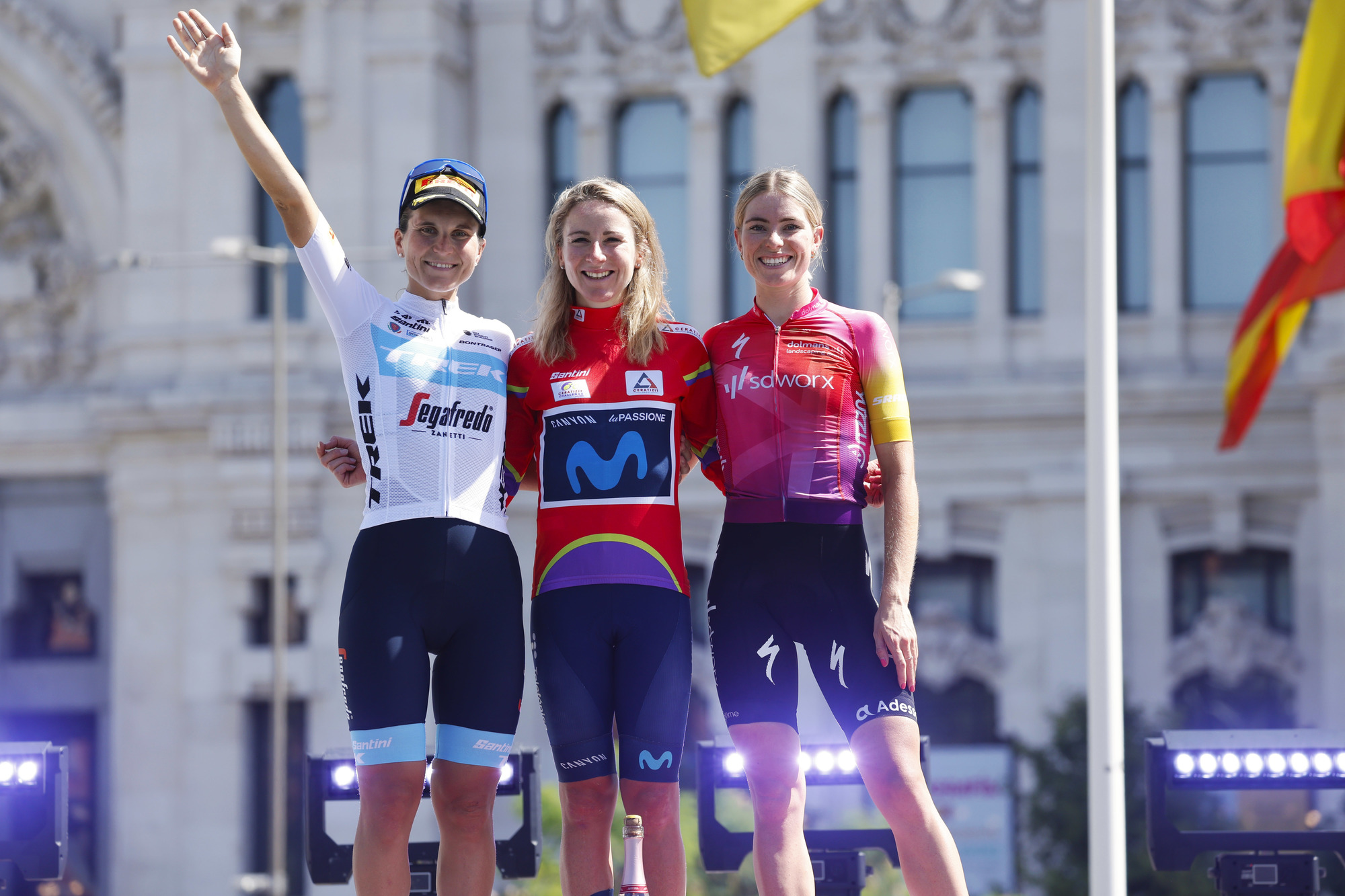
The summer of stage racing concluded on Sunday with the Ceratizit Challenge by La Vuelta, which this year expanded to five stages and its toughest edition yet. Starting with a team time trial, the race took in climbing stages, punchy stages, a long 160km day out and a Madrid circuit sprint for a varied five days of racing. After a huge effort on the Queen stage, Annemiek van Vleuten (Movistar) took overall victory, the latest addition to her long list of achievements.
Whether it was an important target or not, Van Vleuten’s victory sees her complete the so-called Giro-Tour-Vuelta triple in the first year it was possible. Packing the three races into just three months has made for an intense summer, and to win them all is an undeniably impressive achievement. With Van Vleuten hailed as a once-in-a-generation talent, it may be the first and only time we see a rider take home pink, yellow and red in one season.
Though Van Vleuten won the race and became the story, it was only really stage 2 where she dominated, with the other four stages all producing different winners, interesting stories and plenty to learn from. Going into the World Championships and the final races of the season, here’s what Cyclingnews concluded from five days in northern Spain.
It wasn’t too easy for Van Vleuten
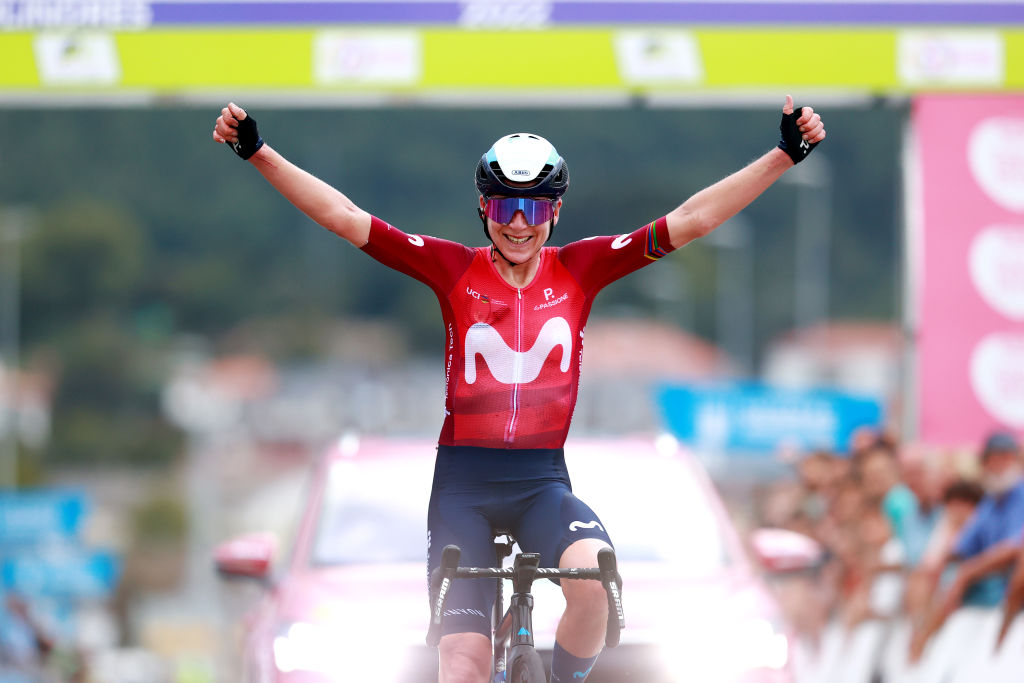
One of the headlines before the Ceratizit Challenge was Annemiek van Vleuten questioning whether she would be able to target and win the race, because the route was “not that hard”. After winning the race by an almost two-minute margin, it seems she has answered her own question.
Van Vleuten’s thoughts were valid - the lack of big climbs would make it harder for her to outclass her competitors on climbing ability alone - but it seems that whilst she thought the climbs lacked difficulty, that wasn’t the way the race unfolded.
The Dutch rider and her Movistar team helped to make the race difficult regardless, setting up Van Vleuten to put her stamp on the race and distance all her rivals.
She also showed her strengths on the flatter days, staying in control but out of trouble on aggressive days that have not always suited her abilities. T
Get The Leadout Newsletter
The latest race content, interviews, features, reviews and expert buying guides, direct to your inbox!
he Ceratizit Challenge may not have been the most challenging parcours of Van Vleuten’s achievements in 2022, but it was a tough win that she had to work for in order to still take victory on a route she admitted wasn’t the best for her.
Medium climbs can be the sweet spot for exciting racing
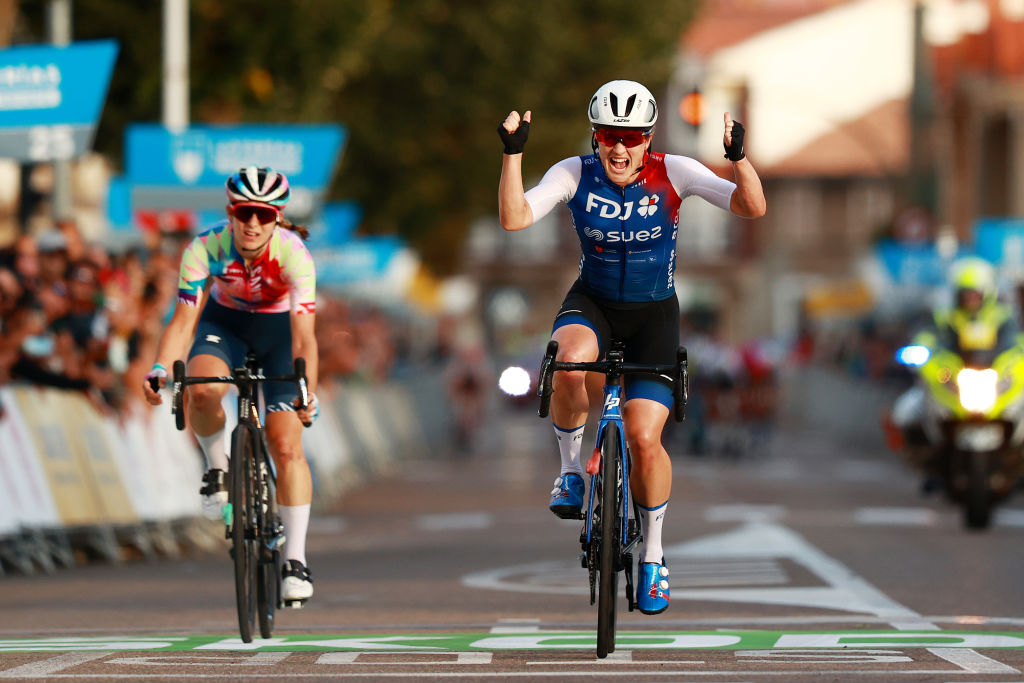
In light of Van Vleuten’s imperious victory on stage 2, using the repeated climbs to tire her opponents and then ride away with the race, there is an argument to be made that stages with less climbing can be more exciting. Stage 3 was a good example of this, featuring one long, dragging 16km climb, which was hard enough to draw out an elite group of riders, but not enough to leave only one or two climbers able to contest the finish.
As a result, a stage like Friday’s forces riders to be aggressive in ways other than just out-climbing their opponents on the inclines and riding away with the race. Successful attacks often go on the flats or short ramps instead, as we saw from Grace Brown (FDJ-SUEZ-Futuroscope) and these require a lot of elements to be successful: going at the right time, being in the right position, taking the right rider with you, working just the right amount to stay away but keep something for the finish.
The debate about climbing - what is too much, what is too little, what should races aim for - has been an ongoing one, and it’s clear that stages with big mountains that suit the pure climbers are wanted in the future of the sport. However, it’s also clear that the profiles that aren’t packed with climbs can still draw out the elite riders, but produce an aggressive, tactical and exciting race.
The Italians are the ones to watch at Worlds
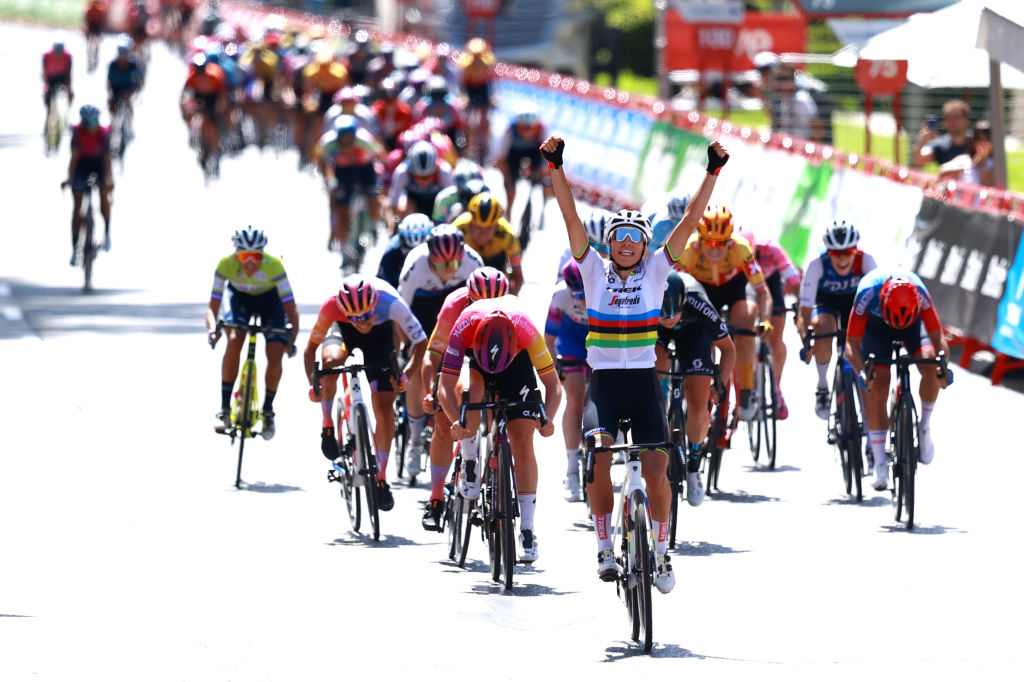
Elisa Balsamo’s win on stage 5 on Sunday was pegged as her last in the rainbow jersey, with the reigning World Champion not set to race again before the road race in Wollongong, but it wouldn’t be a surprise to see another Italian take the stripes, if not Balsamo herself.
The Italian team are yet to confirm their squad for Worlds, but after an impressive year for riders all across the WorldTour, the line-up is sure to be packed with talent.
The weekend of racing only confirmed that, with Silvia Persico (Valcar Travel & Service) finally taking her first big win after an impressive summer, and Elisa Longo Borghini (Trek-Segafredo) climbing well to finish second overall.
The Italian team also have the rare skill of really being able to come together as a team for the big occasions, seen both at last year’s Worlds and this year’s European Championships, an ability that the equally talented Dutch team sometimes struggle to employ.
With Elisa Longo Borghini both climbing and sprinting better than ever, the Italians have a great option for the tricky Worlds course, with Persico an in-form plan B. They were the most successful nation in Spain, and will certainly be big contenders for the title in Australia.
Some teams are running out of time to win
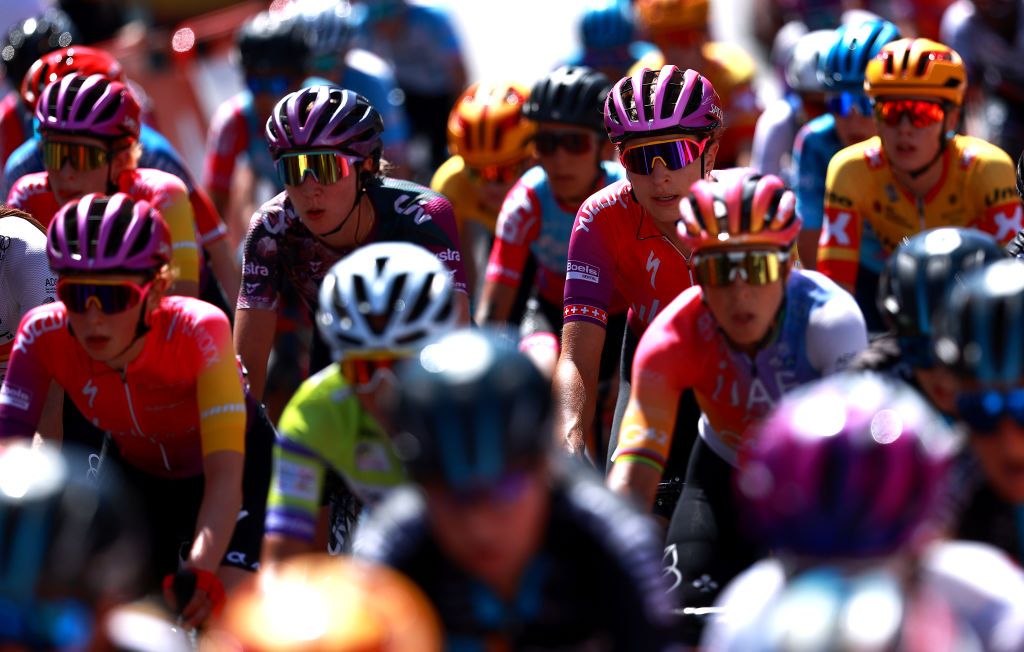
Though the season is still busy and the big goal of the World Championships is yet to come, the Ceratizit Challenge was a reminder that the WorldTour calendar is almost at a close. With only the new Tour de Romandie in October still to be raced, there are now just three days left of WorldTour racing, and therefore only three days left to win.
As the Vuelta finished, six out of 14 WorldTour teams had not won a WorldTour race. Four of them are new WorldTour teams - Human Powered Health, Roland Cogeas Edelweiss, EF Education-TIBCO-SVB and Uno-X - but the remaining two are stalwarts of the peloton, Canyon-SRAM and Liv Racing Xstra.
With the chances to win waning, both teams were very active in Spain, with Canyon-SRAM coming closest to a victory after Elise Chabbey was narrowly beaten by Brown on stage 2. Ultimately though, both teams missed out, and are coming closer to ending the season without a WorldTour victory.
Of course, they have had success in other levels and in other ways - Canyon-SRAM won the team classification and placed Kasia Niewiadoma on the podium of the Tour, not a small achievement - but with so many race days in the WorldTour calendar this year, it may be concerning to finish the year without that top-level win.
It’s not the third 'Grand Tour' - yet
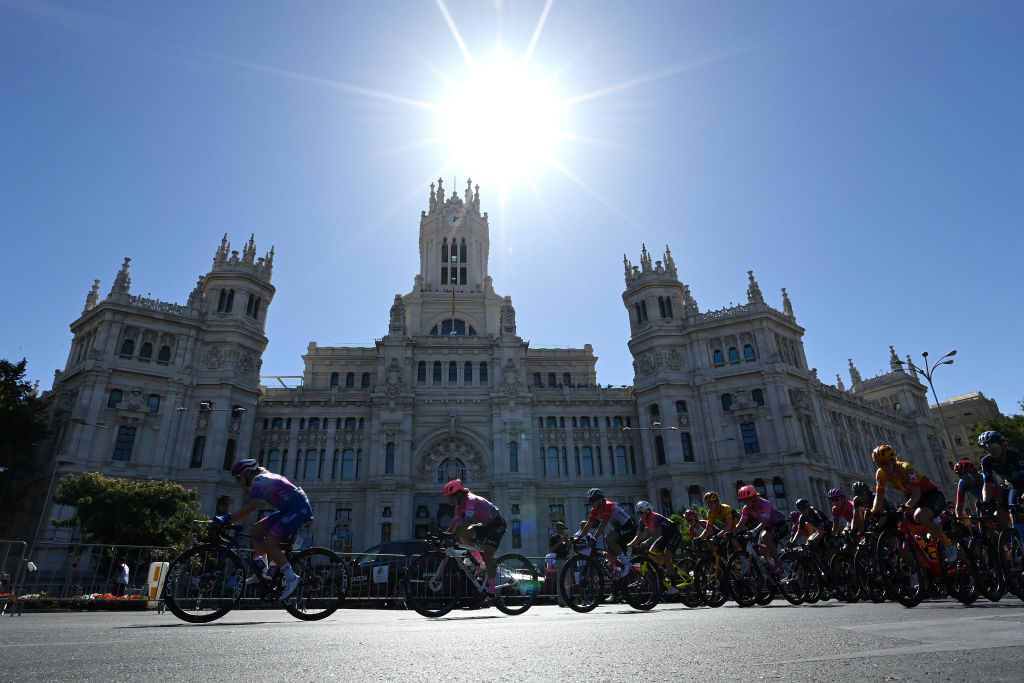
Whether women’s cycling has any 'Grand Tours' is perhaps still a point to be debated, but this year the Giro d’Italia Donne and the Tour de France Femmes have staked their place as the biggest races on the calendar.
Due to its association with the men’s Vuelta a España, it would be easy to place the Ceratizit Challenge in the same league, but this week showed it's perhaps not there yet. At only five stages long, with most of them quite short around the 100km mark, and a lack of climbing over 1,000m, the race didn’t feature many of the challenges that make the Giro and the Tour so tough and prestigious.
Moreover, a point must be made about the coverage. With only the stipulated one hour live broadcast and live updates that were scarce in detail, the race was at points difficult to follow, and as a result perhaps didn’t attract the engagement or attention it should have.
However, this is not the final form for the Ceratizit Challenge. Set to be renamed La Vuelta Femenina, the race is planning to expand to seven stages for 2023, and move away from the men’s race in the calendar.
With a longer race and some harder stages included, plus hopefully a step-up in the coverage, the race would be more level with the Giro and the Tour and may then be more befitting of the Grand Tour moniker.
Matilda is an NCTJ-qualified journalist based in the UK who joined Cyclingnews in March 2025. Prior to that, she worked as the Racing News Editor at GCN, and extensively as a freelancer contributing to Cyclingnews, Cycling Weekly, Velo, Rouleur, Escape Collective, Red Bull and more. She has reported from many of the biggest events on the calendar, including the Giro d'Italia, Tour de France Femmes, Tour of Flanders and Paris-Roubaix. She has particular experience and expertise in women's cycling, and women's sport in general. She is a graduate of modern languages and sports journalism.